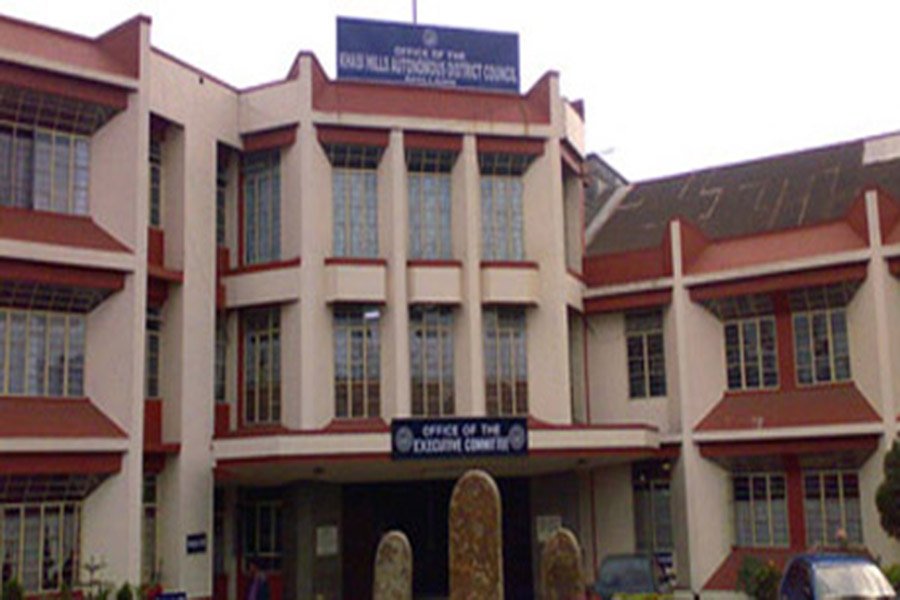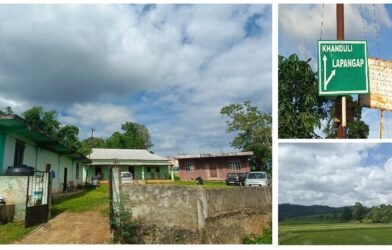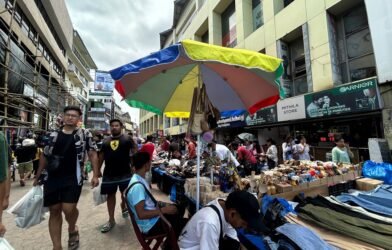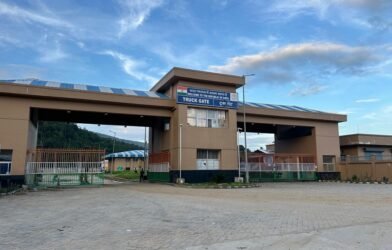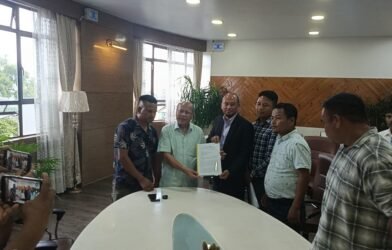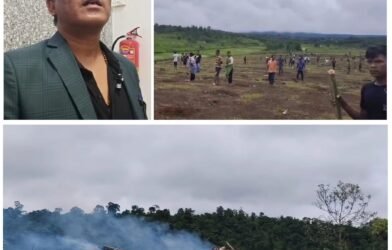Subtotal $0.00
Shillong, Oct 9: The Khasi Hills Autonomous District Council (KHADC) will soon table the Khasi Social Custom of Lineage (Amendment) Bill in its upcoming special session after the Consultative Committee submitted its recommendations to the Council on Tuesday.
The Amendment Bill seeks to deny Schedule Tribe status to Khasi women who marry non-Khasi men as well as their offsprings.
The report and recommendations of the 17-member Consulative Committee on the Lineage Act was handed over by its chairman Manstudy Nongrem to the KHADC chief Hispreaching Son Shylla.
The Consultative Committee was constituted by the KHADC to make recommendations after an indepth study of the provisions of the KHAD (Khasi Social Custom of Lineage) Act, 1977, after the KHADC had recalled the amendment Bills.
Shylla said that the report will be studied by the executive committee before tabling the amendment Bill in the House.
The KHADC is likely to convene the special session on October 15, for passing the amendment Bill.
Shylla informed that first amendment Bill, which had wrongly inserted the appointment and powers of a Clan elder (Rangbah Kur), has been done away with because the Council has decided to come up with a separate Khasi Clan Bill.
“In the Khasi custom, mixed marriage among the women is not being practice,†he said while informing that a tribunal to be headed by an advocate, who is having 7 years of experience, would also be set up for addressing any problems related to the Bill.
Further, Shylla also appealed to Khasi people who are taking their father’s surname to come forward and take corrective measures.
Quoting section 10 of the Khasi Social Custome of Lineage Act, 1997, the KHADC chief said, “Such people who are taking their father’s surnames will also lose their Khasi status and Schedule Tribe status.â€
According to him, the period which allows such people to make corrections have ended since 2010.
He however said that the executive committee has recently decided to further extend the period for such people to make correction.
“This is because it violates the customary practices where children have to take the title of the mother. If not corrected, this will not only dilute the matrilineal system and traditional dorbars but will pave way for the formation of panchayati raj system,†he said.
Whether the Bill would also address the problem of broken families arising out of unregistered marriages, the KHADC chief however said that the Council will soon request the government to approve the Bill related to Marriage in other forms passed in 2005.
“This Bill actually empowers the headman (Rangbah Shnong) to register such marriages under his jurisdiction,†he said.
To a question, Shylla further stated that the idea of “third gender†in the Khasi custom does not exist. “This Bill is totally based on the Khasi custom and practices,†he added.
Meanwhile, the Consulative Committee has submitted a seven-point recommendations which are viewed as of great importance as linkages to the draft amendment Bill.
It has recommended that the trading by non-tribal Regulation should be amended in line with the draft Bill to do away with any contradictions that will crop up besides the need to come up with a Clan Bill that will give more teeth to the proposed draft Bill.
The Committee also stated the need for the executive committee to exercise stringent measures in granting trading license and labour license and to re-visit the marriage in other forms Bill and follow up with the government to obtain its approval.
It further recommended the KHADC to regulate and strengthen the traditional durbar system especially the dorbar shnong, to take immediate steps to check the entry of non-tribals and to take up with other district councils so that uniformity in tackling common issues can be achieved.





